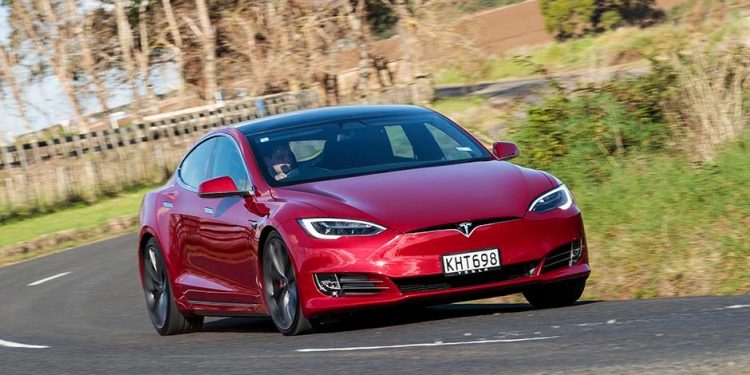Electric car advocate wants NZ to ban petrol cars by 2030
Ever since the New Zealand Government declared a state of climate change emergency late last year, various groups have engaged in a tug of war tussle over what the country is to do regarding its vehicle fleet.
EV advocacy group Drive Electric has confirmed that it wants to see the government ban internal combustion engine vehicles (petrol and diesel) by 2030, following in the footsteps of the UK, Japan, and others.
Speaking earlier today, Drive Electric chairman Mark Gilbert fears that without such a ban New Zealand could become a dumping ground for unwanted ICE vehicles from other markets — a concern that numerous factions in the debate have expressed.
“If New Zealand further lags behind these markets with a concrete ban, we risk becoming a dumping ground for their second-hand petrol vehicles,” he said.

The rationale from Gilbert and Green Party co-leader James Shaw is that a steady flow of unwanted ICE vehicles from Europe and Asia will impede adoption of electric cars locally in the long-run. Speaking to Stuff earlier today, Shaw said he was “certainly sympathetic” to the idea of an ICE vehicle ban.
Gilbert’s most recent NZ Autocar column ouched on just how much progress has been made thus far in the mainstream adoption of electric vehicles, citing all the work done in 2020 and 2021 by every major car manufacturer. And, simultaneously, all the work being done by governments around the world to stimulate transition.
“As the automotive companies focus on new models and ramping up supply, jurisdictions are setting deadlines for this change,” he said.
“By December 2020, there were 31 countries and U.S. states with some form of petrol car ban pending. Norway and South Korea are the most aggressive, not surprisingly, with a new petrol vehicle ban in place from 2025. Slovenia, Iceland, the Netherlands, Ireland, India, Denmark, Sweden, Israel, Germany and the United Kingdom all have 2030 end dates in train.”
Gilbert’s calls join the Climate Change Commission’s recommendation to ban the sale of new ICE vehicles locally by 2035. Public submissions on the commission’s report closed at the end of March, with some pundits tipping that the government will follow the commission’s recommendations.
The news contrasts last week’s op-ed from Toyota New Zealand CEO Neeraj Lala. Published in the NZ Herald, Lala expressed that he thought the commission’s recommendations were too ambitious and may trigger adverse side-effects.
“We will not have access to thousands of affordable and reliable pre-owned EVs from Japan for a long time. […] The cheapest new EV on the market in New Zealand today is around $60,000. We sell the Toyota Corolla hybrid for $33,690. There is no EV Corolla on the horizon for that sort of money,” he said.
“The country has enough renewable electricity to power more EV cars and trucks. When we get to the Commission’s target, however, it gets expensive. We will have to increase electricity generating and distribution capacity substantially when the EV fleet gets to 15 to 20 per cent of the national fleet.”





